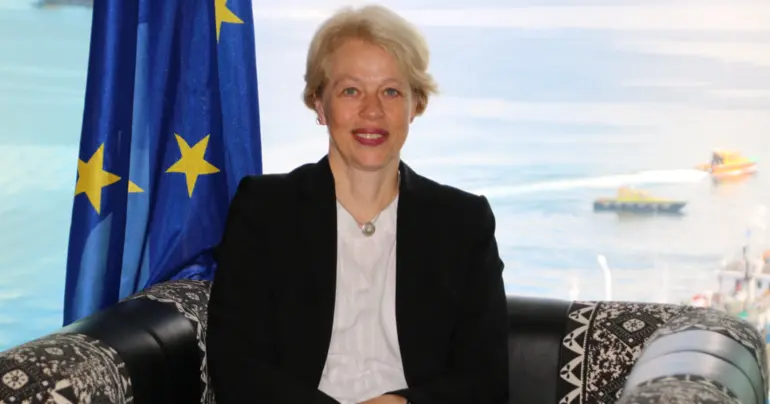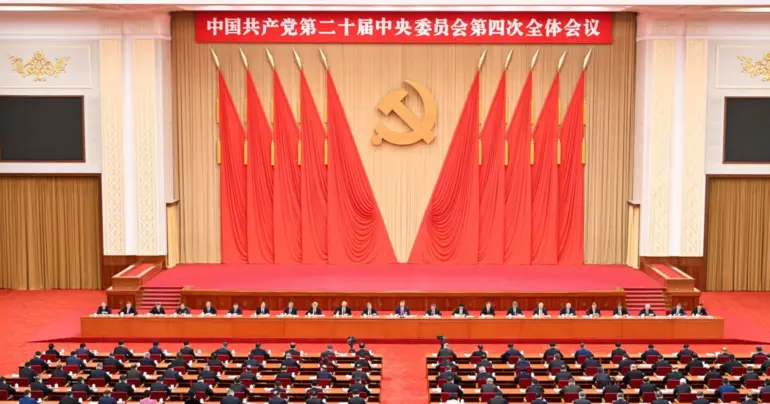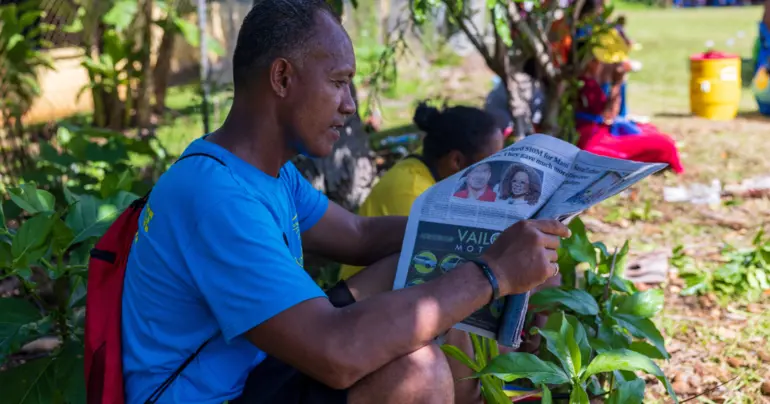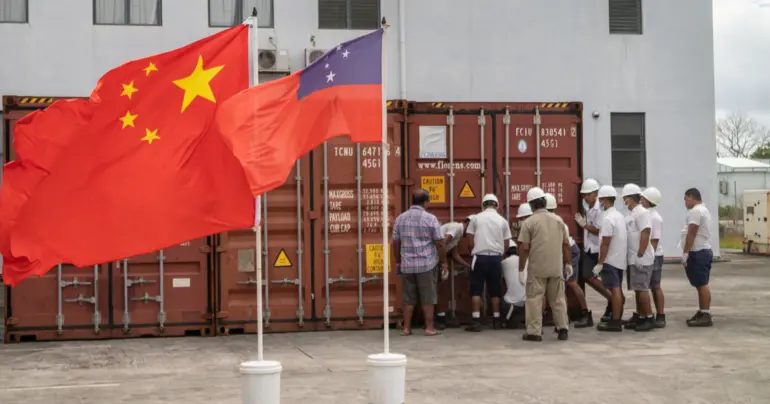The Falepili Union: A Pacific response to the greatest global challenges
In November 2023, Prime Minister Anthony Albanese and then Prime Minister of Tuvalu Kausea Natano signed the Australia–Tuvalu Falepili Union. This week, with the support of Natano’s successor Feleti Teo, the treaty entered into force.
This is the most significant agreement between Australia and one of its Pacific partners since the agreements for Papua New Guinea’s independence in 1975.
While the Falepili Union was a request from Tuvalu, it enshrines a commitment from both countries to work together on some of the greatest challenges of our time, including climate change and security.
The Treaty heralds transformational arrangements to safeguard the future of Tuvalu’s people, identity and culture. Tuvalu is a country of small islands and atolls, scattered across some 680 kilometres of the vast Pacific Ocean, roughly halfway between Australia and Hawaii.
On average, Tuvalu is less than three metres above sea level, putting its 11,200 people on the very front lines of the global climate crisis.
We are committed to helping Pacific neighbours in this challenge, because it supports stability and prosperity in our region, because we can solve these challenges when we work together, and because it is the right thing to do.
Through the Falepili Union, Australia recognises in a legally binding treaty that Tuvalu’s statehood will continue, even in the face of the worst climate impacts. This is a world first.
As climate impacts worsen, Tuvaluans should have options to guarantee their safety and prosperity – allowing some to stay in their homes, and some to migrate with dignity.
Australia is supporting Tuvalu’s Coastal Adaptation Project to create new space for housing, critical infrastructure and essential services in Tuvalu, building buffers and reinforcements so coastal buildings can withstand higher tides and intensifying extreme weather.
As part of the Falepili Union agreement, initially up to 280 Tuvaluans a year will be offered the choice to live, study and work in Australia, enabling them to learn new skills and provide financial support at home.
This pathway for mobility with dignity as climate impacts worsen is internationally groundbreaking. Australia also commits to assist, at Tuvalu’s request, in the event of major disasters, pandemics or military aggression.
Tuvalu and Australia are embracing the obligations we have made to each other to achieve and protect our shared interests. Together, we will agree on any arrangements Tuvalu enters into with other parties relating to Tuvalu’s security or defence. This provision recognises that, as Pacific countries, our interests are intertwined.
“Falepili” is a Tuvaluan word for good neighbourliness, care and mutual respect. These values, and respect for each other’s sovereignty, lie at the heart of our Falepili Union. When we say we are part of the Pacific family, this is what we mean. We share a region, an ocean, and a future.
We will continue working hard on ambitious approaches such as the Falepili Union to strengthen Australia’s Pacific partnerships and advance the region’s interest in a safe and secure Pacific.
This article was first published on Lowy Institute’s blog site The Interpreter. Pat Conroy is Australia’s Minister for International Development and the Pacific, Minister Defence Industry and Capability Delivery.











